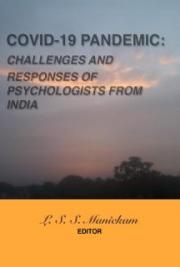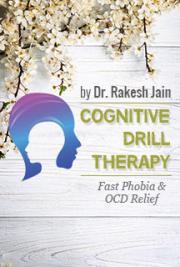part replaced them by others which
differ
extensively. I would reply that these
alleged advances in science are well known to me.
Yet I have riot been convinced either of their
correctness or of Robertson Smith's errors. Con-
tradiction is not
always refutation; a new theory
does not
necessarily denote progress. Above all,
however, I am not an ethnologist, but a psycho-
analyst. It was my good right to select from
ethnological data what would serve me for my
analytic work. The writings of the highly gifted
Robertson Smith
provided me with valuable
points of contact with the psychological material
of
analysis and suggestions for the use of it. I
cannot
say the same of the work of his opponents.
9. The Historical Development
I cannot
reproduce here the contents of Totem
and Taboo, but I must
try to account for the long
2O8 MOSES AND MONOTHEISM
interval that took
place between the events
which we
suggested happened in primaeval times
and the victory of monotheism in historical times.
After the combination of brother clan,
matriarchy,
exogamy and totemism had been established
there
began a development which may be
described as a slow " return of the
repressed.
55
The term " repressed
55
is here used not in its
technical sense. Here I mean
something past,
vanished and overcome in the life of a
people,
which I venture to treat as
equivalent to repressed
material in the mental life of the individual. In
what
psychological form the past existed during
its
period of darkness we cannot as yet tell. It is
not
easy to translate the concepts of individual
psychology into mass psychology, and I do not
think that much is to be
gained by introducing
the
concept of a " collective " unconscious the
content of the unconscious is collective
anyhow,
a
general possession of mankind. So in the mean-
time the use of
analogies must help us out. The
processes we study here in the life of a people are
very similar to those we know from psycho
-
pathology, but still they are not quite the same.
We must conclude that the mental residue of those
primaeval times has become a heritage which,
with each new
generation, needs only to be
awakened, not to be re-acquired. We may think
here of the
example of speech symbolism, which
certainly seems to be inborn. It originates in the
HIS PEOPLE AND MONOTHEISTIC RELIGION
2OQ
time of
speech development, and it is familiar to
all children without their
having been specially
instructed. It is the same in all
peoples in spite
of the differences in
language. What we may still
lack in
certainty we may acquire from other
results of
psycho -analytic investigations. We
learn that our children in a number of
significant
relationships do not react as their own experiences
would lead us to
expect, but instinctively, like
animals; this is explicable only by phylogenetic
inheritance.
The return of the
repressed proceeds slowly;
it
certainly does not occur spontaneously, but
under the influence of all the
changes in the
conditions of life that abound
throughout the
history of civilization. I can give here neither a
survey of the conditions on which it depends nor
any more than a scanty enumeration of the stages
in which the return
proceeds. The father became
again the head of the family, but he was no
longer omnipotent as the father of the primaeval
horde had been. In
clearly recognizable transi-
tional
stages the totem animal was ousted by the
god. The god, in human form, still carried at
first the head of an animal
; later on he was wont
to assume the
guise of the same animal. Still
later the animal became sacred to him and his
favourite
companion or else he was reputed to
have slain the animal, when he added its name
to his own. Between the totem animal and the
2IO MOSES AND MONOTHEISM
god the hero made his appearance; this was
often an
early stage of deification. The idea of a
Highest Being seems to have appeared early; at
first it was
shadowy and devoid of any connection
with the
daily interests of mankind. As the tribes
and
peoples were knit together into larger unities
the
gods also became organized into families and
hierarchies. Often one of them was elevated to
be the overlord of
gods and men. The next step,
to
worship only one God, was taken hesitatingly,
and at
long last the decision was made to
concede all
power to one God only and not to
suffer
any other gods beside him. Only then was
the
grandeur of the primaeval father restored;
the emotions
belonging to him could now be
repeated.
The first effect of the reunion with what men
had
long missed and yearned for was overwhelm-
ing and exactly as the tradition of the law -giving
on Mount Sinai
depicts it. There was admiration,
awe and
gratitude that the people had found
favour in His
eyes: the religion of Moses knows of
only these positive feelings towards the Father -
God. The conviction that His
power was
irresistible, the subjection to His will, could not
have been more absolute with the
helpless,
intimidated son of the father of the horde than
they were here; indeed, they become fully com-
prehensible only by the transformation into the
primitive and infantile milieu. Infantile feelings
HIS PEOPLE AND MONOTHEISTIC RELIGION 211
are far more intense and inexhaustibly deep than
are those of adults; only religious ecstasy can
bring back that intensity. Thus a transport of
devotion to God is the first response to the return
of the Great Father.
The direction of this Father religion was thus
fixed for all time, but its development was not
thereby finished. Ambivalency belongs to the
essence of the father -son relationship ; it had to
happen that in the course of time the hostility
should be stirred which in ancient times had
spurred the sons to slay their admired and
dreaded father. In the religion of Moses itself
there was no room for direct expression of the
murderous father-hate. Only a powerful reaction
to it could make its
appearance: the conscious-
ness of
guilt because of that hostility, the bad
conscience because one had sinned against God
and continued so to sin. This feeling of guiltiness,
which the Prophets incessantly kept alive and
which soon became an integral part of the
religious system itself, had another, superficial,
motivation which cleverly veiled the true origin
of the
feeling. The people met with hard times;
the
hopes based on the favour of God were slow in
being fulfilled; it became not easy to adhere to
the illusion, cherished above all else, that they
were God's chosen
people. If they wished to keep
happiness, then the consciousness of guilt because
they themselves were such sinners offered a
212 MOSES AND MONOTHEISM
welcome excuse for God's severity. They deserved
nothing better than to be punished by Him,
because
they did not observe the laws; the need
for
satisfying this feeling of guilt, which coming
from a much
deeper source was insatiable, made
them render their
religious precepts ever and ever
more strict, more exacting, but also more petty.
In a new
transport of moral asceticism the Jews
imposed on themselves constantly increasing
instinctual renunciation, and
thereby reached
at least in doctrine and
precepts ethical heights
that had remained inaccessible to the other
peoples of antiquity. Many Jews regard these
aspirations as the second main characteristic, and
the second
great achievement, of their religion.
Our investigation is intended to show how it is
connected with the first one, the
conception of
the one and
only God. The origin, however, of
this ethics in
feelings of guilt, due to the repressed
hostility to God, cannot be gainsaid. It bears the
characteristic of
being never concluded and never
able to be concluded with which we are familiar
in the reaction -formations of the obsessional
neurosis.
The further development transcends Judaism.
Other elements
re-emerging from the drama
enacted around the
person of the primaeval
father were in no
way to be reconciled with the
Mosaic
religion. The consciousness of guilt in
that
epoch was no longer restricted to the Jews;
HIS PEOPLE AND MONOTHEISTIC RELIGION
213
it had seized all Mediterranean
peoples as a
vague discomfort, a premonition of misfortune
the reason for which no one knew. Modern
history speaks of the ageing of antique culture.
I would surmise that it has
apprehended only
some of the casual and adjuvant causes for the
mood of dejection then prevailing among the
peoples. The lightening of that oppression
proceeded from the Jews. Although food for the
idea had been
provided by many suggestive
hints from various
quarters, it was, nevertheless,
in the mind of a
Jew, Saul of Tarsus, who as a
Roman citizen was called Paul, that the percep-
tion dawned: "it is because we killed God the
Father that we are so unhappy.'
5
It is
quite clear
to us now
why he could grasp this truth in no
other form but in the delusional guise of the
glad
tidings: " we have been delivered from all guilt
since one of us laid down his life to
expiate our
guilt.
55
In this formulation the murder of God
was, of course, not mentioned, but a crime that
had to be expiated by a sacrificial death could
only have been murder. Further, the connection
between the delusion and the historical truth was
established
by the assurance that the sacrificial
victim was the Son of God. The strength which
this new faith derived from its source in historical
truth enabled it to overcome all obstacles; in the
place of the enrapturing feeling of being the
chosen ones there came now release through
214 MOSES AND MONOTHEISM
salvation.^The fact of the father-murder, how-
ever, had on its return to the memory of mankind
to overcome
greater obstacles than the one which
constituted the essence of monotheism; it had to
undergo a more extensive distortion. The un-
mentionable crime was replaced by the tenet of
the somewhat shadowy conception of orig-
inal sin.
Original sin and salvation through sacrificial
death became the basis of the new religion
founded by Paul. The question whether there
was a leader and instigator to the murder among
the horde of brothers who rebelled against the
primaeval father, or whether that figure was
created later by
poets who identified themselves
with the hero and was then incorporated into
tradition, must remain unanswered. After the
Christian doctrine had burst the confines of
Judaism, it absorbed constituents from many
other sources, renounced many features of pure
monotheism and adopted in many particulars
the ritual of the other Mediterranean peoples.
It was as if
Egypt had come to wreak her venge-
ance on the heirs of Ikhnaton. The way in which
the new
religion came to terms with the ancient
ambivalency in the father -son relationship is
noteworthy. Its main doctrine, to be sure, was
the reconciliation with God the Father, the
expiation of the crime committed against Him ;
but the other side of the relationship manifested
HIS PEOPLE AND MONOTHEISTIC RELIGION
215
itself in the Son who had taken the
guilt on his
shoulders
becoming God himself beside the
Father and in truth in
place of the Father.
Originally a Father religion, Christianity became
a Son
religion. The fate of having to displace the
Father it could not
escape.
Only a part of the Jewish people accepted the
new doctrine. Those who refused to do so are
still called
Jews. Through this decision they are
still more
sharply separated from the rest of the
world than
they were before. They had to suffer
the
reproach from the new religious community
which besides Jews included
Egyptians, Greeks,
Syrians, Romans and lastly also Teutons that
they had murdered God. In its full form this
reproach would run: " they will not admit that
they killed God, whereas we do and are cleansed
from the
guilt of it.
55
Then it is easy to understand
what truth lies behind this
reproach. Why the
Jews were unable to participate in the progress
which this confession to the murder of God
betokened
(in spite of all its distortion) might
well be the
subject of a special investigation.
Through this they have, so to speak, shouldered
a
tragic guilt. They have been made to suffer
severely for it.
Our research has perhaps thrown some light
on the
question how the Jewish people acquired
the
qualities that characterize it. The problem
how they could survive until to-day as an entity
2l6 MOSES AND MONOTHEISM
has not
proved so easy to solve. One cannot,
however, reasonably demand or expect exhaustive
answers of such
enigmas. All that I can offer is a
simple contribution, and one which should be
appraised with due regard to the critical limita-
tions I have
already mentioned.
GLOSSARY
^Etiology causation, particularly of disease.
Affect
pertaining to the feeling bases of emotion.
Ambivalence the co-existence of opposed
feelings, par-
ticularly love and hate.
Amnesia failure of
memory.
Cathexis the
process whereby ideas and mental attitudes
are invested with a "
charge " of emotion.
Imago a German periodical devoted to the non-medical
application of psycho-analysis.
Instinctual
pertaining to instinct.
Masochism the
obtaining of sexual pleasure in conjunction
with
suffering.
Obsessional Neurosis a neurosis characterized
by the
alternation of obsessive
(compulsive) ideas and doubts.
Onanism auto-erotic
activity, the commonest example
being masturbation.
Phylo-genetic pertaining to racial development.
Reaction -formation
development of a character trait that
keeps in check and conceals another one, usually of
the
exactly opposite kind.
Regression reversion to an earlier kind of mental life.
Repetition-compulsion the tendency to repeat, which
Freud considers the most fundamental characteristic of
the mind.
Repression the keeping of unacceptable ideas from
consciousness, i.e. in the " unconscious."
Sadism the
obtaining of sexual pleasure through the
infliction of
suffering.
Super-ego the self-criticizing part of the mind out of
which the conscience
develops.
Trayma injury, bodily or mental.
217
INDEX
Aaron: 53.
Abraham: 44, 72.
Adonai: 42, 64, 65.
Adonis: 42.
JEgyptische Religion, Die: 37.
^Eschylos: 180.
^Etiology of the neuroses: 117,
118, 119.
After-life:
33.
Agade: 17.
Akhetaton (see also Ikhnaton) : 39,
40.
Akki:
17.
Alexander the Great: 115.
Allah: 149.
Alphabet, first: 69.
Amalek: 101.
Ambivalency
:
211,214.
Amenhotep III: 36, 38.
Amenhotep IV (see also Ikhnaton)
:
34, 35, 37, 38, 96-
Amon: 13, 36, 38, 39, 41, 142.
Amon-Re: 32.
Amphion: 17.
Ancestor cults: 149.
Anti-semitism: 145, 146, 147.
Aramcans: 48.
Archaic heritage: 157, 158, 161.
Astruc, Jean: 68.
Athene: 38, 74.
Atkinson: 130, 205, 206.
Aton (or Atum) : 36, 37, 42, 46,
58, 67, 96, 102, 103.
Aton religion: 39, 40, 41, 43, 50,
51, 81, 96, 97, 98, 113, 142, 178,
Auerbach: 68, 102.
Azupirani: 17.
Baalim: 1 13, 196.
Babylon: 17.
Beethoven: 172.
Bes:
32.
Birth: 18,
19.
Breasted,). H.: 13, 14, 35, 37, 38,
41, 81.
Brother clan: 206.
Buonaparte, Napoleon: 14.
Cambridge Ancient History: 35.
Canaan: 44, 48, 61, 62, 74, 78,
79, ?4, 985 99, ioi , 196.
Cannibalism: 131, 132.
Castration: 131, 147, 192.
threat of : 127.
complex: 136, 159.
Cathexis: 156.
Cerebral-anatomy: 156.
Chamisso, Adelbert von: 14.
Chosen people : 211.
Christ: 21, 94, 140, 141, 162.
Christian Communion: 135,141.
Evangelists
:
137.
Religion: 142.
Circumcision: 44, 45, 46, 48, 49,
50, 56, 64, 65, 71, 72, 98, 100,
141, 147, 192.
"
Collective " unconscious : 208.
Cologne: 146.
Compromise
: no.
Compulsiveness
:
123.
Counter-cathexis : 152, 153.
Credo quia absurdum: 186.
Crete:
74.
Cyrus: 17, 20.
Darwin, Charles: 108, 130, 205,
206.
Darwinian doctrine: 109.
David, King: 68,69.
Da Vinci, Leonardo: 172.
3*9
22O INDEX
Dawn of Conscience, The: 13, 14,
35, 37, 4'> 81.
Delusions:
137.
Deuteronomy: 68.
Development of the neuroses
: 1
29.
Disraeli, Benjamin: 14.
Distortion :
113,214.
E: 65.
Ebjatar: 68.
Ego: 109, 122, 125, 154, 155, 200.
Egyptian monotheism: 35, 107.
religion: 31, 32, 33, 34,
36,41,43,46.
Egyptian Religion, The: 50.
"Elders of Zion":
138.
Elohim: 65.
Elohist: 68, 101.
Encyclopedia Britannica, The: 68.
Erman, A.: 37, 50.
Ethiopia: 47, 53.
Euphrates: 17.
Evans, A. J.: 74, 114.
Evolution: 108.
Exile:
41, 69.
Exodus: 30, 47, 48, 52, 54, 57, 60,
65, 66, 71, 78, 98, 99,
100, 110, 176.
Book of: 12, 71, 79.
Exogamy: 132, 188, 191, 206,
208.
Exposure myth: 21, 22, 23.
Ezra: 69,
74.
Falcon: 40.
Falsification : 1 1 1 .
Family romance
: 1 8.
Father-hate: 211.
-murder: 131, 162, 206,
214.
-religion: 141.
-son-relationship
:
211,214.
substitute:
143.
Feelings of guilt: 138,143,212.
Finns:
114.
Fixation: 122,
123, 124, 125, 136.
Flaubert: 80.
Frazer, Sir James: 144.
Galton, A.: 16.
Genesis of the neuroses : 1 1 8.
German National Socialism: 90,
148.
German people: 90,114.
Gilgamesh: 17.
Godfrey: 74.
Gods of Greece, The: 162.
Goethe:
144, 172, 198, 200.
Golden Age, the:
115.
Golden
Bough, The
: 1







